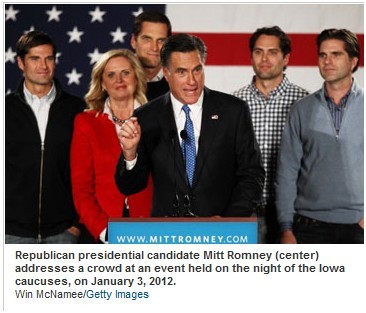What’s the difference between a caucus and a primary?
USINFO | 2013-09-05 11:49

Every four years, television news crews from New York to Los Angeles set up camp in the frigid cornfields of rural Iowa. The Iowa Caucuses, held in early January, represent the first chance for regular Americans from both major political parties to show support for a presidential candidate. The national press covers every minute of pre-caucus excitement as presidential hopefuls spread out across all 99 Iowa counties to shake hands at local diners and give stump speeches in elementary school gyms.
As the earliest event of the primary election season -- you know, the free-for-all that determines the nominees in each party -- Iowa serves as a bellwether of national sentiment, helping to launch or sink candidacies and separate the wheat from the chaff -- or in Iowa's case, the corn from the husk. But what exactly is a caucus? And how is it different from a primary?
Caucuses and primaries are the two ways in which the Democratic and Republican parties choose the delegates who will attend the parties' national conventions. The national convention is where the delegates officially choose the party's nominee for the presidential race.
Primaries offer a relatively straightforward way of assigning delegates to the national convention. Voters from each party cast their vote for one of the candidates on the primary ballot. Like the general presidential election, primary voting is done on an assigned day at an assigned polling place. Voting is private and anonymous. Depending on the state's rules, delegates are either distributed in proportion to the amount of votes received by each candidate (known as a proportional primary), or all delegates are given to the candidate who gets the most votes (called a "winner take all" primary).
Caucuses, on the other hand, are far from straightforward. (Interestingly, before the 1960s and 1970s, most states chose their delegates through caucuses, not primaries.) For one thing, caucuses aren't exclusively for presidential elections. In addition, caucuses were traditionally held every two years so that local members of each political party could meet, discuss the issues of the day, and help to shape the political platform of the state and national party [source: Redlawski et al].
Share this page